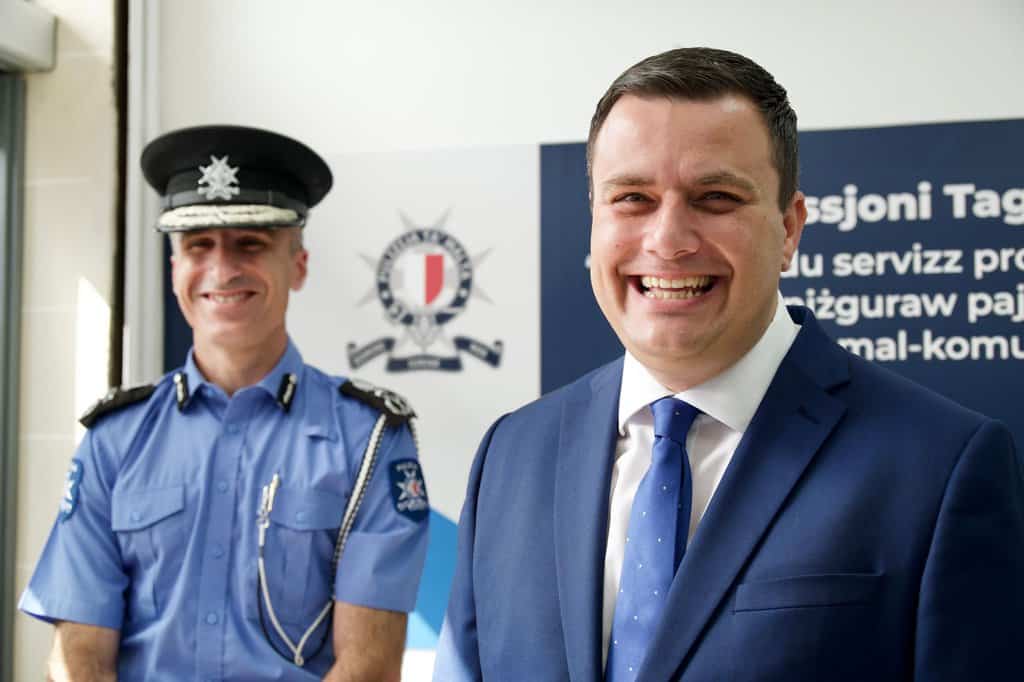
Young and old, Maltese and Gozitans, partisans and neutrals, Nationalists or Labourites, all do not trust the police to act in a case that may embarrass, or bring about criminal consequences, in Joseph Muscat.
For 9 years Joseph Muscat told us to trust the police force while he hired and fired a series of police chiefs until he found what must have been for him the ideal candidate, the farcical Lawrence Cutajar.
After the end of those nine years at the public inquiry that looked into the state’s responsibility for the killing of Daphne Caruana Galizia the leadership of the police force was exposed for duplicity, complicity, incompetence, and collusion with criminals. Some resignations were forced. Some disciplinary processes were started. Some criminal prosecutions kicked off.
And Lawrence Cutajar was replaced by Angelo Gafà whose rule was characterised by even more resignations in the management of the police force though it seemed that generally speaking the good guys quit and the bad guys clung on.
The previous January, days into his premiership, Repubblika told Robert Abela his “reform” in the police would lead nowhere. It would amount to nothing more than a missed opportunity to cause any meaningful change.
Repubblika was right. Robert Abela was wrong. And both knew it at the time.
Angelo Gafà has been nothing more than Robert Abela’s moderately more presentable version of Joseph Muscat’s Lawrence Cutajar: in other words someone who would hold the fort in Floriana and make sure that nothing happened, no Labour Party politician suffers any form of consequence for their wrongdoing.
This is not just true for the hospitals privatisation. It is true for all those cases of corruption that have been for years on the desks of magistrates and of the attorney general but which the police have buried in sand with their pathological inactivity.
Consider the Electrogas contract that killed Daphne Caruana Galizia 6 years ago because she had by then put together the evidence that has not been used by the police in a courtroom since. Consider Pilatus Bank where the case against the money-laundering kings has been wrapped up by the magistrate for years but which the police and attorney general refuse to do anything about.
The difference with the hospitals contract is that a civil court has pronounced itself openly (in a way an inquiring magistrate is not allowed to do) and pronounced that deal as “fraudulent”.
So now the test of confidence in the police is not being put to and by activists like Repubblika alone. It is being put to and by the population at large who has been told by a judge that he thinks the privatisation was “fraudulent”. Why did the police not notice this before now? Why did they not act on the same evidence heard in the civil court in order to their job at least as diligently as the civil court did?
Why did it have to be Adrian Delia who brought the case in court when the police had far more means to do so in the criminal court?
Times of Malta’s survey clearly shows what people are thinking. The police do not work for the public or even for some abstract sense of justice. True about a quarter of respondents who vote for the Labour Party declare confidence in the police but given their self-confessed fanaticism that sounds like delight that the police will do their job as these fanatics perceive it: the job to protect Joseph Muscat and his cronies.
The rest, whose idea of justice is a little less personalised and a little more enlightened, express helplessness. No one can put handcuffs on Joseph Muscat except the police. And the police just won’t.
After years of being told by the leadership in the Labour Party to “let the institutions work” the people’s answer is simple. We may let them, we may urge them, we may complain about them, we may get out of their way to let them work: the police, at least, just won’t work whether we want them to or not.